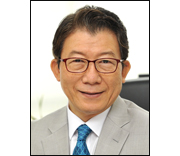-
[January 13. 2016 Korea times] Foreign SMEs welcomed
- Date : 2016.03.10
- Views : 292
Foreign SMEs welcomed
 |
By Jeffrey I. Kim
Despite slower growth of its gross domestic product, Korea's efforts to promote FDI last year were successful. FDI in Korea recorded US$20.43 billion on a notification basis exceeding its annual target of $20 billion. This was attributable to large-scale construction and petrochemical projects in the Middle East and the popularity of the Korean Wave and Korean brands in China. On an accumulated arrival basis, however, foreign companies from Europe are dominant in Korea. During 1962-2014 foreign investment from the EU account for 42 percent, Asia 33 percent, and the U.S. 23 percent. Currently 539 companies from Germany, 439 from the U.K., and 251 from France are operating in Korea.
The investment areas for foreign investment in Korea are manufacturing and service industries. However, Korea favors the foreign-invested companies that bring in high technology and the government provides them with many incentives. This explains why a large proportion of European companies are operating in Korea. Against this background, we take a special notice that a large proportion of foreign-invested companies are small-and-medium sized enterprises (SMEs). Most of them are the producers of high-tech machine tools and precision equipment.
According to a recent study released by the OECD, SMEs account for over 95% of the firms and 60%-70% of the employment and generate a large share of new jobs in the OECD economies. SMEs have both strengths and weaknesses. Due to the fast spread of new technologies in this age of hyper globalization, the importance of economies of scale is reduced but the economic contribution of SMEs has increased. Owing to the availability of external partnerships, larger firms tend to downsize and rely more on outsourcing. Consequently the importance of SMEs is increasing. Also productivity growth is increasing by the virtue of competition among small-size firms.
Regardless of whether they are operating in developed or developing countries, SMEs are suffering from various problems such as a lack of financing, shortages of manpower, constrained managerial capabilities, and limited access to high technology. The job turnover rates among SMEs are high relative to larger firms and the frequent births and deaths of SMEs significantly disturb the labor market. Due to capital shortages, they tend to spend little on R&D, and critically, they have difficulty in securing well-trained workers.
A lack of entrepreneurship is another critical weakness of SMEs. Entrepreneurs are people who sense opportunities, innovate, and develop new products. Unlike the larger firms, family-owned SMEs seldom hire globally minded entrepreneurs. However, the government can help the SME owners obtain entrepreneurship by reducing or eliminating outdated regulations and institutional impediments. The government can also provide platforms through which SMEs may find foreign partners.
At this stage of globalization, there is something that small-size firms can take advantage of. By using international networking, SMEs can combine the advantages of their smaller scale and greater flexibility and explore the larger markets. SMEs can better adjust to changing market conditions, evolving consumer preferences and shorter product life cycles by customizing and differentiating products.
In Europe, Germany is often cited as an SME-power house. Since 2008 Germany has been exceptional. Compared to other member states, German SMEs expanded throughout the crisis period. Between 2009 and 2013 alone, more than 160,000 new SMEs established themselves. In Germany more than 99 percent of the companies are SMEs and over 3.6 million of them provide more than 60 percent of all jobs in Germany.
Most German businesses are small to medium-sized companies. They are called "Mittelstand." The term, Mittelstand, commonly refers to small and medium-sized enterprises in German-speaking countries, especially in Germany, Austria and Switzerland. The features of the German SMEs include family ownership, generational continuity, emotional attachment, flexibility, innovativeness, social responsibility, and customer focus. The country is also billed as "the Hidden champions,"a term coined by Hermann Simon which refers to relatively small-size but highly successful exporters actively exploring global markets.
Korea welcomes foreign SMEs as the country is in desperate need of strengthening its potential to grow and increase employment. Korea provides foreign companies with various incentives including tax breaks, cash grants, and reductions or exemptions in office and factory rents. In addition, the government provides channels such as the Korea Trade and Investment Promotion Agency (KOTRA) or other local government agencies through which foreign investors can establish partnerships with Korean SMEs as well as with larger firms that can exercise dynamic entrepreneurship and great innovation.
Jeffrey I. Kim is a foreign investment ombudsman, a presidentially appointedtroubleshooter for investors and entrepreneurs from overseas. He earned a Ph.D.in economics at the University of Chicago and taught at the University ofColorado, Boulder, and Sungkyunkwan University.
Link : http://www.koreatimes.co.kr/www/news/nation/2016/01/197_195232.html










